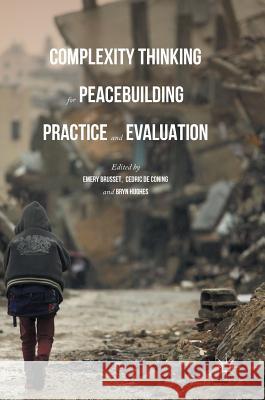Complexity Thinking for Peacebuilding Practice and Evaluation » książka
topmenu
Complexity Thinking for Peacebuilding Practice and Evaluation
ISBN-13: 9781137601100 / Angielski / Twarda / 2016 / 287 str.
Kategorie BISAC:
Wydawca:
Palgrave MacMillan
Język:
Angielski
ISBN-13:
9781137601100
Rok wydania:
2016
Wydanie:
2016
Ilość stron:
287
Waga:
0.49 kg
Wymiary:
22.0 x 15.32 x 2.18
Oprawa:
Twarda
Wolumenów:
01
Dodatkowe informacje:
Bibliografia
Wydanie ilustrowane
Wydanie ilustrowane











